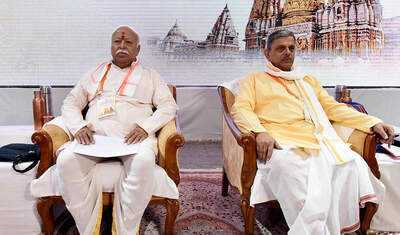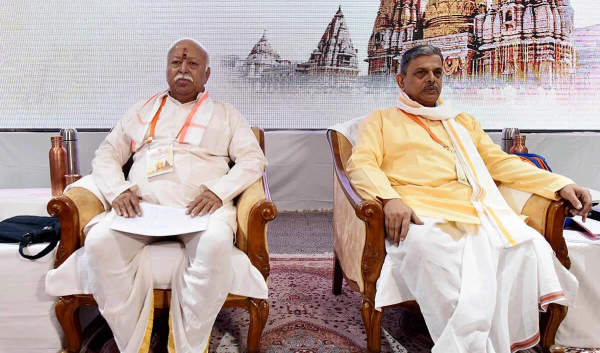
 RSS National Meeting Kicks Off in Delhi
RSS National Meeting Kicks Off in Delhi
The Rashtriya Swayamsevak Sangh (RSS) commenced a three-day national meeting in Delhi on Friday. The agenda includes discussions on the role of volunteers during emergencies, particularly in wartime scenarios, participation in civil defense exercises like Operation Sindoor, and the ongoing atrocities against Hindus in West Bengal and Bangladesh. The organization is focusing on how its members can actively contribute during wartime or in civil disaster management initiatives. Sunil Ambekar, the RSS spokesperson, highlighted the organization's historical contributions during crises, such as the 1962 India-China war when volunteers managed traffic in Delhi and delivered relief supplies at the request of Prime Minister Nehru.
Another significant topic of discussion was the increasing violence against the Hindu community in West Bengal and Bangladesh. The RSS representatives expressed concern that these issues are not receiving adequate attention on both national and international platforms. Strategies were developed during the meeting to effectively raise these matters before the government and other forums. Additionally, the meeting reviewed past organizational activities and discussed plans for upcoming year-long campaigns. Notably, this year marks the centenary of the RSS, with celebrations set to begin on October 2, coinciding with Vijayadashami. The organization plans to conduct social harmony meetings and outreach campaigns across the country to foster dialogue and cooperation among all societal segments.
Approximately 233 senior officials from the RSS, including leaders from 32 affiliated organizations, are participating in this crucial meeting. Ambekar noted that the attendees include provincial and regional propagators, with the RSS structured into 11 regions and 46 provinces, each comprising three to four provinces. The meeting is being chaired by RSS Chief Mohan Bhagwat and General Secretary Dattatreya Hosabale, playing a pivotal role in shaping the organization's policies, social strategies, and future direction.
Before the meeting commenced, Ambekar addressed critics who often claim that the RSS lacks representation for marginalized communities. He stated, 'I believe that when political discussions arise on these issues, the RSS should be kept out of it. It is connecting every segment of society in its own way. People from all backgrounds are joining.' He emphasized that the RSS does not discriminate based on caste or community, welcoming individuals from Scheduled Castes (SC), Scheduled Tribes (ST), and Other Backward Classes (OBC) as volunteers and officials fulfilling their responsibilities.
When questioned about the opposition's criticism regarding comments made by Dattatreya Hosabale on the terms 'secular' and 'socialist' in the Constitution's preamble, Ambekar responded that the RSS General Secretary referenced the atrocities committed during the Emergency and the implications of the added terms in the preamble, suggesting that these topics warrant discussion. He remarked, 'On the 50th anniversary of the Emergency, it is essential to reflect on the injustices that occurred, including the oppression faced by individuals in prisons and the political turmoil that ensued. These issues should certainly be discussed.' He reiterated that the RSS is a pan-Indian social organization, gaining support from a broad segment of society amidst various political critiques.